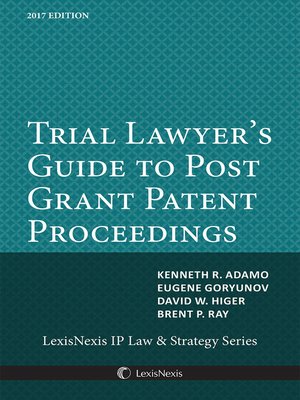
Sign up to save your library
With an OverDrive account, you can save your favorite libraries for at-a-glance information about availability. Find out more about OverDrive accounts.
Find this title in Libby, the library reading app by OverDrive.



Search for a digital library with this title
Title found at these libraries:
| Library Name | Distance |
|---|---|
| Loading... |
With the September 2012 advent of post grant proceedings under the America Invents Act ("AIA"), the parallel proceedings landscape changed—radically. Under the AIA, ex parte reexaminations continued, inter partes reexaminations ended, and three new proceedings were born: inter partes review ("IPR"), post-grant review ("PGR"), and covered business method review ("CBMR").
Use of these new proceedings grew rapidly and their popularity surprised many in the traditional U.S. district court-focused trial bar. Many U.S. district courts stayed litigations involving the challenged patent(s) thereby shifting the enforcement focus into the USPTO. Parallel proceedings between U.S. district court and the USPTO was the "new normal," as many thousands of post grant proceedings have been sought and instituted.
Trial lawyers that were not experienced with USPTO proceedings began to find that effective enforcement representation required post grant proceeding experience and skill in the administrative proceeding mechanism that IPR, PGR and CBMRs presented. As those trial lawyers began to explore the lay of the USPTO proceedings, a number of differences between how a U.S. district court works and a USPTO post grant patent proceeding works quickly manifested themselves.
All of this leads to one simple observation: PTAB panels expect rigorous knowledge of the law and procedure applicable to a post grant proceedings—whether IPR, PGR, CBMR—and rigorous adherence to the same. The purpose of Trial Lawyer's Guide to Post Grant Patent Proceedings is to guide trial lawyers through critical decisions and assist them in complying with the PTAB's rules and regulations.







